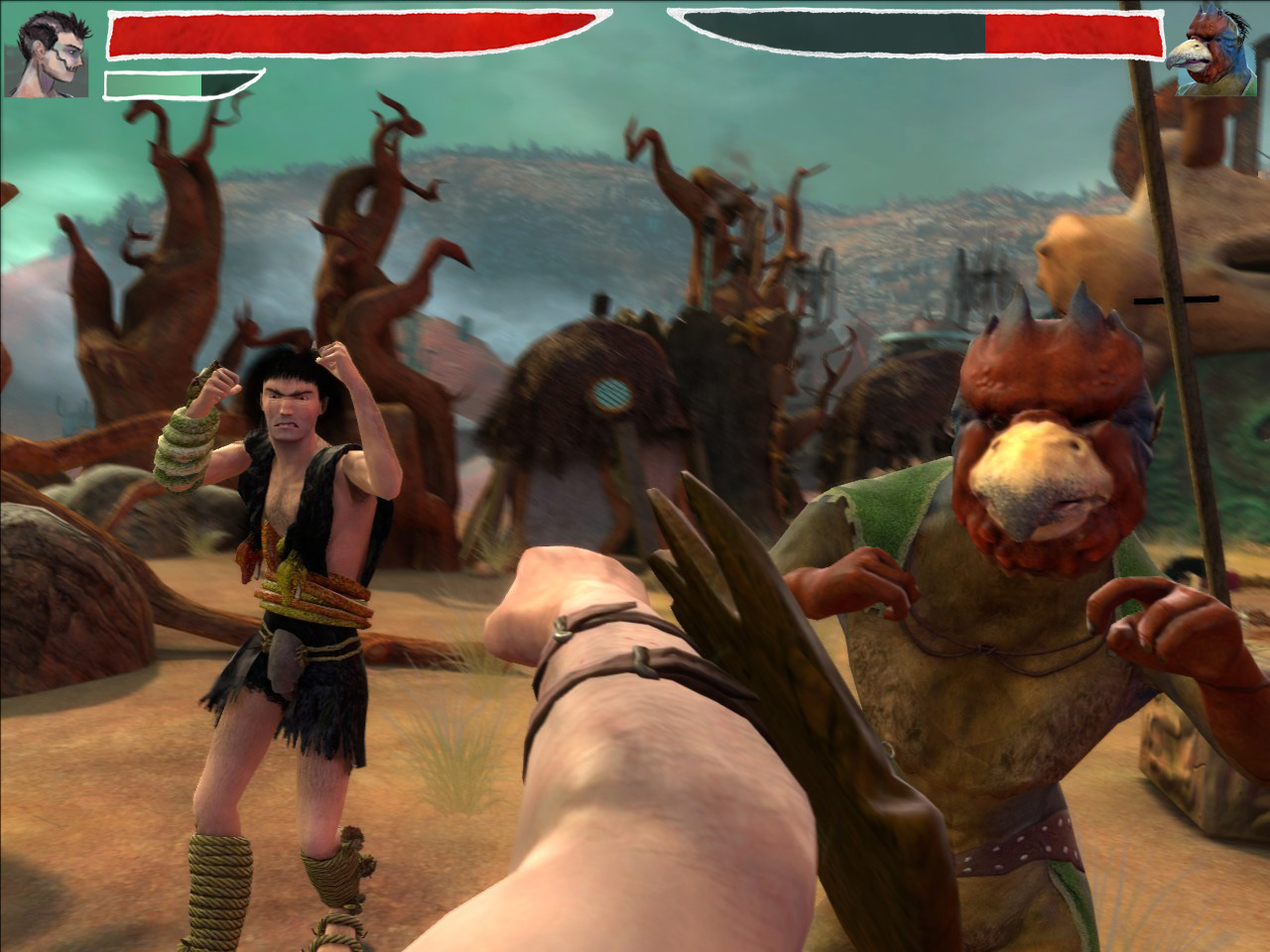|
Big Trouble In Little China (video Game)
''Big Trouble in Little China'' is a side-scrolling beat 'em up designed by Mev Dinc and published by Electric Dreams Software in 1986 for the Amstrad CPC, Commodore 64, and ZX Spectrum. It is a tie-in#Video games, tie-in licence for the Big Trouble in Little China, film of the same name. Gameplay The player controls one of the three main protagonists and may switch between them during play. The characters progresses from right to left – an unusual orientation in this genre of game – fighting oncoming enemies. Initially, the three characters fight unarmed, but each has a weapon of choice that can be collected. Jack Burton can use a gun with limited ammunition, and Wang Chi can wield swords which eventually break. The third character, Egg Shen, initially fires weak magic bolts which improve with range and strength when he finds a magic potion. Reception ''Big Trouble in Little China'' received diverse critical reception. ''Your Sinclair'' awarded 8 out of 10, highlighting smoot ... [...More Info...] [...Related Items...] OR: [Wikipedia] [Google] [Baidu] |
Mev Dinc
Mevlüt Dinç (born May 1957), better known as Mev Dinc, is a Turkish-British video game designer. Born and raised in Turkey, he moved to England in 1979 while finishing his studies, intending to pursue a master's degree there. Unable to pay the high tuition fees for international students, Dinc worked in a cable factory in Southampton, where a colleague introduced him to video games and got him a ZX Spectrum when it was released in 1982. Dinc taught himself to program via magazines and began working in the video game industry in 1983, starting with assisting on the Commodore 64 conversion of ''Ant Attack'', released in 1984. After his first original game, ''Gerry the Germ Goes Body Poppin''', in 1985, he worked with Electric Dreams Software on another original game, ''Prodigy'', the Amstrad CPC port of ''Enduro Racer'', and various tie-ins with films and TV series. After leaving Electric Dreams, Dinc co-developed '' Last Ninja 2'' for System 3 and, together with former System ... [...More Info...] [...Related Items...] OR: [Wikipedia] [Google] [Baidu] |
Video Games Developed In The United Kingdom
Video is an electronic medium for the recording, copying, playback, broadcasting, and display of moving visual media. Video was first developed for mechanical television systems, which were quickly replaced by cathode-ray tube (CRT) systems which, in turn, were replaced by flat panel displays of several types. Video systems vary in display resolution, aspect ratio, refresh rate, color capabilities and other qualities. Analog and digital variants exist and can be carried on a variety of media, including radio broadcast, magnetic tape, optical discs, computer files, and network streaming. History Analog video Video technology was first developed for mechanical television systems, which were quickly replaced by cathode-ray tube (CRT) television systems, but several new technologies for video display devices have since been invented. Video was originally exclusively a live technology. Charles Ginsburg led an Ampex research team developing one of the first practical vide ... [...More Info...] [...Related Items...] OR: [Wikipedia] [Google] [Baidu] |
Video Games Based On Films
Video is an electronic medium for the recording, copying, playback, broadcasting, and display of moving visual media. Video was first developed for mechanical television systems, which were quickly replaced by cathode-ray tube (CRT) systems which, in turn, were replaced by flat panel displays of several types. Video systems vary in display resolution, aspect ratio, refresh rate, color capabilities and other qualities. Analog and digital variants exist and can be carried on a variety of media, including radio broadcast, magnetic tape, optical discs, computer files, and network streaming. History Analog video Video technology was first developed for mechanical television systems, which were quickly replaced by cathode-ray tube (CRT) television systems, but several new technologies for video display devices have since been invented. Video was originally exclusively a live technology. Charles Ginsburg led an Ampex research team developing one of the first practical ... [...More Info...] [...Related Items...] OR: [Wikipedia] [Google] [Baidu] |
Commodore 64 Games ...
{{short description, None This is a list of games for the Commodore 64 personal computer system, sorted alphabetically. See Lists of video games for other platforms. Because of the length of the list, it has been broken down to two parts: *List of Commodore 64 games (A–M) *List of Commodore 64 games (N–Z) See also * Commodore 64 Games System * Commodore 64 The Commodore 64, also known as the C64, is an 8-bit home computer introduced in January 1982 by Commodore International (first shown at the Consumer Electronics Show, January 7–10, 1982, in Las Vegas). It has been listed in the Guinness ... [...More Info...] [...Related Items...] OR: [Wikipedia] [Google] [Baidu] |
Beat 'em Ups
The beat 'em up (also known as brawler and, in some markets, beat 'em all) is a video game genre featuring hand-to-hand combat against a large number of opponents. Traditional beat 'em ups take place in scrolling, two-dimensional (2D) levels, while a number of modern games feature more open three-dimensional (3D) environments with yet larger numbers of enemies. The gameplay tends to follow arcade genre conventions, such as being simple to learn but difficult to master, and the combat system tends to be more highly developed than other side-scrolling action games. Two-player cooperative gameplay and multiple player characters are also hallmarks of the genre. Most of these games take place in urban settings and feature crime-fighting and revenge-based plots, though some games may employ historical, science fiction or fantasy themes. The first beat 'em up was 1984's '' Kung-Fu Master'', which was based on Hong Kong martial arts films. 1986's ''Nekketsu Kōha Kunio-kun'' introduce ... [...More Info...] [...Related Items...] OR: [Wikipedia] [Google] [Baidu] |
Amstrad CPC Games
Amstrad was a British electronics company, founded in 1968 by Alan Sugar at the age of 21. The name is a contraction of Alan Michael Sugar Trading. It was first listed on the London Stock Exchange in April 1980. During the late 1980s, Amstrad had a substantial share of the PC market in the UK. Amstrad was once a FTSE 100 Index constituent, but since 2007 has been wholly owned by Sky UK. , Amstrad's main business was manufacturing Sky UK interactive boxes. In 2010, Sky integrated Amstrad's satellite division as part of Sky so they could make their own set-top boxes in-house. The company had offices in Kings Road, Brentwood, Essex. History 1960s and 1970s Amstrad (also known as AMSTrad) was founded in 1968 by Alan Sugar at the age of 21, the name of the original company being AMS Trading (Amstrad) Limited, derived from its founder's initials (Alan Michael Sugar). Amstrad entered the market in the field of consumer electronics. During the 1970s they were at the forefron ... [...More Info...] [...Related Items...] OR: [Wikipedia] [Google] [Baidu] |
1986 Video Games
The year 1986 was designated as the International Year of Peace by the United Nations. Events January * January 1 **Aruba gains increased autonomy from the Netherlands by separating from the Netherlands Antilles. **Spain and Portugal enter the European Community, which becomes the European Union in 1993. *January 11 – The Sir Leo Hielscher Bridges, Gateway Bridge in Brisbane, Australia, at this time the world's longest prestressed concrete free-cantilever bridge, is opened. *January 13–January 24, 24 – South Yemen Civil War. *January 20 – The United Kingdom and France announce plans to construct the Channel Tunnel. *January 24 – The Voyager 2 space probe makes its first encounter with Uranus. *January 25 – Yoweri Museveni's National Resistance Army Rebel group takes over Uganda after leading a five-year guerrilla war in which up to half a million people are believed to have been killed. They will later use January 26 as the official date to avoid a coincidence of ... [...More Info...] [...Related Items...] OR: [Wikipedia] [Google] [Baidu] |
Sinclair User
''Sinclair User'' was a magazine dedicated to the Sinclair Research range of home computers, most specifically the ZX Spectrum (while also occasionally covering arcade games). Initially published by ECC Publications, and later EMAP, it was published in the UK between 1982 and 1993, and was the longest running Sinclair-based magazine. The magazine contained news, game reviews, previews, tips, help guides, columns, readers' letters, and cover-mounted game demos. History In earlier years, the magazine built up personality cults around some of its "hilariously" monikered staff, including Bill "Incorruptible" Scolding, John "Disgusting" Gilbert, Chris "Lunchbreaks" Bourne, Claire "Ligger" Edgely, Richard Price (writer of the "Gordo Greatbelly" adventure tips section), and columnist Andrew Hewson (founder of Hewson Consultants software). Under David Kelly's editorial tenure, the magazine began to focus more on the gaming scene, and featured more colour graphics under designer Garet ... [...More Info...] [...Related Items...] OR: [Wikipedia] [Google] [Baidu] |
Your Sinclair
''Your Sinclair'', or ''YS'' as it was commonly abbreviated, was a commercially published and printed British computer magazine for the Sinclair range of computers, mainly the ZX Spectrum. It was in circulation between 1984 and 1993. History The magazine was launched in January 1984 as ''Your Spectrum'' by Sportscene Specialist Press. (Sportscene would later be renamed to Dennis Publishing in April 1987.) Initially, it was published bimonthly, changing to monthly in June 1984. With the January 1986 issue, the title was relaunched as ''Your Sinclair'', with the intention of expanding coverage of the QL into the main magazine (previously, ''QL User'' had been a pull-out section within the magazine), and any future computers produced by Sinclair. However, the magazine remained focused almost entirely on the ZX Spectrum games scene. In 1990, the magazine was sold to Bath-based Future plc, and the April 1990 issue was the first to be published by the new company. That issue's news ... [...More Info...] [...Related Items...] OR: [Wikipedia] [Google] [Baidu] |
Big Trouble In Little China
''Big Trouble in Little China'' (also in known as ''John Carpenter's Big Trouble in Little China'') is a 1986 American fantasy action comedy film directed by John Carpenter and starring Kurt Russell, Kim Cattrall, Dennis Dun and James Hong. The film tells the story of truck driver Jack Burton (Russell), who helps his friend Wang Chi (Dun) rescue Wang's green-eyed fiancée from bandits in San Francisco's Chinatown. They go into the mysterious underworld beneath Chinatown, where they face an ancient sorcerer named David Lo Pan (Hong), who requires a woman with green eyes to marry him in order to be released from a centuries-old curse. Although the original screenplay by first-time screenwriters Gary Goldman and David Z. Weinstein was envisioned as a Western set in the 1880s, screenwriter W. D. Richter was hired to rewrite the script extensively and modernize it. The studio hired Carpenter to direct the film and rushed ''Big Trouble in Little China'' into production so that it ... [...More Info...] [...Related Items...] OR: [Wikipedia] [Google] [Baidu] |
Electric Dreams Software
Electric Dreams Software was a UK-based video game publisher established in 1985 by Activision and run by Rod Cousens and Paul Cooper formerly of Quicksilva . The company published video games for the ZX Spectrum, Commodore 64, Amstrad CPC and the Atari 8-bit family of computers between 1985 and 1989, becoming one of the top eight UK software houses of that decade. Software Studios The publisher's in-house video game developer was Software Studios, set up in April 1986 and run by John Dean and Dave Cummings. Software Studios also handled Activision's products marketed in countries outside the United States. The concept behind this team was to pool resources and ideas between all Electric Dreams projects, but they were also directly responsible for two film tie-in licenses, '' Aliens: The Computer Game'' (1986) and ''Big Trouble in Little China''. The company's initial releases were '' Riddler's Den'' and ''I, Of the Mask''. List of releases *'' Riddler's Den'' (1985), David Ha ... [...More Info...] [...Related Items...] OR: [Wikipedia] [Google] [Baidu] |



